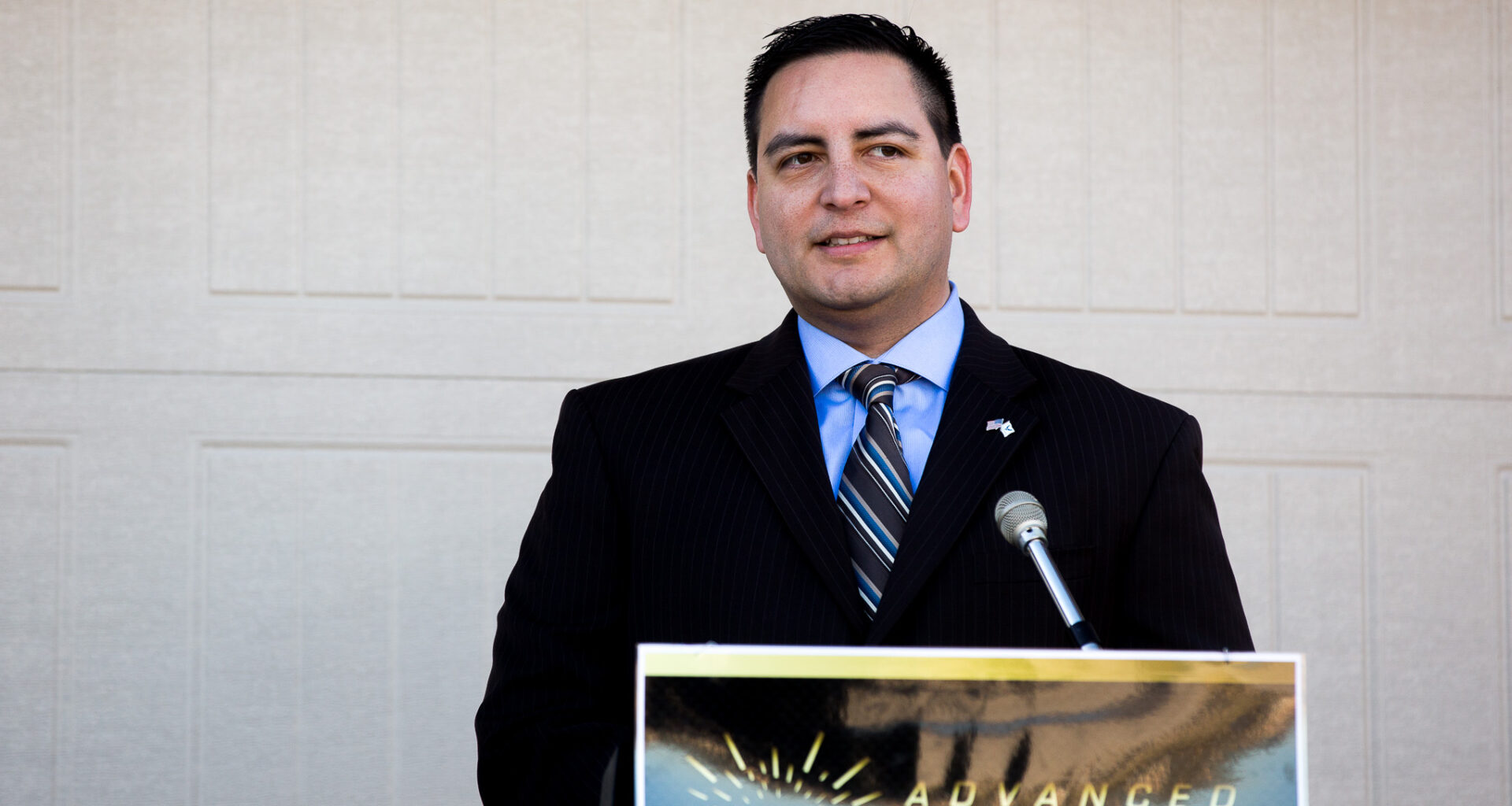When most of his Democratic colleagues decamped to Illinois to stop President Donald Trump’s redistricting plan last month, state Rep. Philip Cortez (D-San Antonio) was one of the few members of his party still showing up for work at the Texas Capitol.
Now at least one fellow Democrat hopes to capitalize off Cortez’ absence from the quorum break by jumping into the 2026 Democratic primary in Texas House District 117.
The race could make Cortez the latest in a long line of political moderates whose districts were made safer for their party after the 2020 census — and opened them up to new primary threats in the process.
Robert Mihara, a U.S. Army veteran and West Point graduate, filed a campaign treasurer’s report in February signaling interest in the race but will hold a formal campaign kickoff at the Cove this month, aimed at capitalizing on Cortez’ decision at a time when other Democrats are taking a victory lap on delaying Texas’ new congressional maps.
“I do have obviously other reasons why I’m running, but in my mind, the quorum break was a impetus to act more aggressively,” said Mihara, 48, who is currently running a San Antonio nonprofit that provides legal services for low-income and at-risk clients. “ … At a moment that demanded courage, he chose convenience.”
Cortez, 47, first won the Southwest state House district when it was a swing district fought over by Republicans and Democrats alike.
The Air Force veteran defeated a Republican incumbent in 2012, lost to a GOP challenger in 2014, and won it back for his party in 2016.
But the district was redrawn to favor Democrats by a wide margin in 2021, and like many other political centrists in a gerrymandered state, Cortez’s once-celebrated relationships across the aisle are now looking like a double-edged sword.
As Mihara put it, “in the given situation where the GOP in Texas specifically is prone to abuse of power … [Cortez’s] approach won’t work anymore.”
Democrats in distress
After major losses in November, already outnumbered Texas Democrats have few levers of power left to push back on policies they don’t like.
The GOP’s redistricting plan is likely to be approved by the Republican-controlled House any day now that Democrats have returned to the capitol this week.
But Democratic leaders say that leaving the state allowed their counterparts in blue states to strategize their own mid-cycle redistricting plans and make up congressional seats lost in Texas.
Cortez contends that even though he didn’t join colleagues in Illinois, he fully supported their effort and had the blessing of Democratic leaders to stay behind.
“This year things have changed in terms of my family life — my wife and I welcomed a newborn baby girl — and logistically, it was difficult for me to leave the state for an extended amount of time,” Cortez said.
“I let them know that I wasn’t able to break quorum, but I was going to stand with them and do everything I can to stop [Republicans’ redistricting effort].”
 Candidate Robert Mihara. Credit: Courtesy / Robert Mihara
Candidate Robert Mihara. Credit: Courtesy / Robert Mihara
But Cortez has taken plenty of criticism for his closeness to GOP leaders, including another notable defection from a quorum break in 2021 to negotiate on Republicans’ controversial election security proposals.
“I was told by the Republican leadership at that time that we can work out some compromises, that they were willing to give ground on a couple of those pieces of legislation,” Cortez recalled of that decision this week. “When I arrived, I was met with a different message and a different understanding … so I went back to D.C. and joined my colleagues.”
To Mihara, those decisions are at odds with a Democratic Party that desperately needs to make voters aware of what Republicans are doing and present an compelling alternative.
“Part of the reason why I am running is my belief that the representative that we have in Austin needs to be a fighter by nature,” he said.
Criticism aside, Cortez said he’s raising money and gearing up for a seventh term.
“I vote for what I believe is the best interest of my district,” Cortez said of his apolitical approach. “I try to look at every public policy [through the lens of] the impact it’s going to have to my senior citizens, impact to my veterans.”
Cortez reported about $71,000 on hand as of July 15. Mihara loaned his campaign some seed money, and reported about $2,000 on hand.
Candidate filing for the March primary opens November 8.
